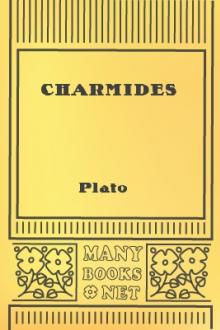Genre Philosophy. Page - 8
No registration or authorisation! And it is all for free!

ot worthy of much consideration. For why shouldAristotle, because he has quoted several Dialogues of Plato, have quotedthem all? Something must be allowed to chance, and to the nature of thesubjects treated of in them.) On the other hand, Mr. Grote trusts mainlyto the Alexandrian Canon. But I hardly think that we are justified inattributing much weight to the authority of the Alexandrian librarians inan age when there was no regular publication of books, and every temptationto forge them; and

PSYCHOLOGY OF THE LEADERS OF THE REVOLUTION1. Mentality of the men of the Revolution. The respective influence of violent and feeble characters 2. Psychology of the Commissaries or Representatives on Mission'' 3. Danton and Robespierre 4. Fouquier-Tinville, Marat, Billaud-Varenne, &c. 5. The destiny of those Members of the Convention who survived the Revolution BOOK III THE CONFLICT BETWEEN ANCESTRAL INFLUENCES AND REVOLUTIONARY PRINCIPLES CHAPTER I. THE LAST CONVULSIONS OF ANARCHY. THE

the Life ofReason, if it were brought to perfection, intelligence would be at oncethe universal method of practice and its continual reward. Allreflection would then be applicable in action and all action fruitful inhappiness. Though this be an ideal, yet everyone gives it from time totime a partial embodiment when he practises useful arts, when hispassions happily lead him to enlightenment, or when his fancy breedsvisions pertinent to his ultimate good. Everyone leads the Life ofReason in so

and, illogically enough, his presence in the street gave Mrs. Drabdump a curious sense of security, as of a believer living under the shadow of the fane. That any human being of ill-odor should consciously come within a mile of the scent of so famous a sleuth-hound seemed to her highly improbable. Grodman had retired (with a competence) and was only a sleeping dog now; still, even criminals would have sense enough to let him lie.So Mrs. Drabdump did not really feel that there had been any

ons. When our Lord commanded His Apostles to go forth and make disciples of all nations, and they went forth to carry out this command, they gave to every nation to which they came the Church in its completeness with powers of perpetuity. To every nation were given the Christian Faith, the Apostolic Ministry, the Sacraments and the Christian Worship or Liturgy. Hence there {14} sprung up national Churches, all equal and having union with one another in these four essentials of Christian Truth

hose of LutheranPastors. Put all this together and say if the human race hasever presented a more unlovely aspect. When we try to find thebrighter spots they are chiefly where civilisation, as apartfrom religion, has built up necessities for the community, suchas hospitals, universities, and organised charities, asconspicuous in Buddhist Japan as in Christian Europe. We cannotdeny that there has been much virtue, much gentleness, muchspirituality in individuals. But the churches were empty

THE VEDAS, BRÂHMANAS AND THEIR PHILOSOPHYThe Vedas and their antiquity. The sacred books of India, the Vedas, are generally believed to be the earliest literary record of the Indo-European race. It is indeed difficult to say when the earliest portions of these compositions came into existence. Many shrewd guesses have been offered, but none of them can be proved to be incontestably true. Max Müller supposed the date to be 1200 B.C., Haug 2400 B.C. and Bâl [email protected]âdhar Tilak 4000 B.C.

ishment, clothing and protection under the parental roof for a period varying from eighteen to twenty years, or even longer.c. =Support and Protection of Weaker Members of Society.=--Young animals are supported and protected because they are unable to support and protect themselves. If they were not thus cared for the race would become extinct. Now, there are certain individuals, orphans for example, who have, through some accident, been deprived of their natural support and protection. If

e, and will do better next time. The trouble, the pain, we havebrought on ourselves by our ignorance, we note, as showing that we havedisregarded a law, and we profit by the additional knowledge in thefuture.Thus understanding conscience, we shall not take it as a basis ofmorality, but as our best available individual light. We shall judgeour conscience, educate it, evolve it by mental effort, by carefulobservation. As we learn more, our conscience will develop; as we actup to the highest we

y on earth. The early explorers of America found similar traditions and beliefs among the Red Indians, survivals of which exist even unto this day. It is related of a number of savage tribes, in different parts of the world, that they place the bodies of their dead children by the roadside, in order that their souls may be given a good chance to find new bodies by reason of the approaching of many traveling pregnant women who pass along the road. A number of these primitive people hold to the